Are you in the process of buying or selling a home? If so, you may have heard about VA inspections and the importance of pest control. But who exactly is responsible for paying for these services? In this article, we will delve into the topic of pest control and VA inspections and help you understand who bears the financial responsibility. Whether you are a homeowner, a buyer, or a real estate agent, this information will be invaluable in navigating the sometimes confusing world of home inspections. So let’s dive right in and discover the answer to the burning question: Who pays for pest control and VA inspections?
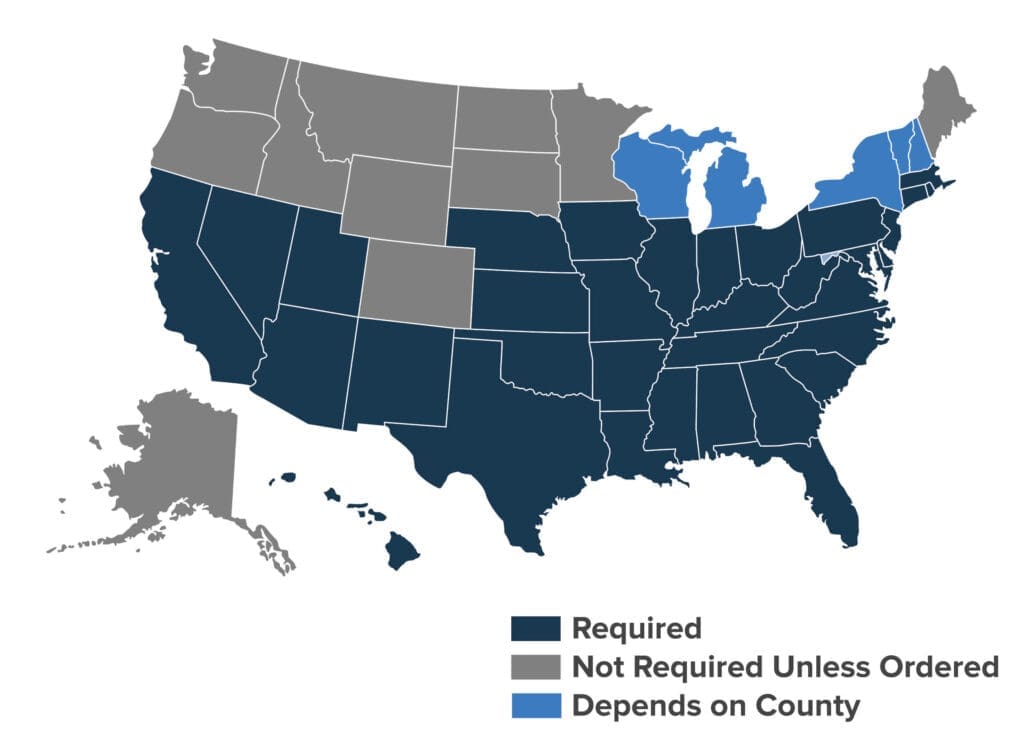
Introduction to Pest Control and VA Inspections
Understanding the importance of pest control
When it comes to maintaining a healthy and comfortable home environment, pest control plays a crucial role. Pests such as rodents, termites, and ants can not only be a nuisance but also pose serious health risks to you and your family. From transmitting diseases to causing property damage, pests can wreak havoc if not addressed promptly. That’s why it’s essential to understand the importance of pest control and take necessary measures to prevent infestations.
Exploring VA inspections and their relevance
If you’re in the process of buying or selling a home, you may come across the term “VA inspections.” VA inspections refer to the inspections required for homes financed through the Department of Veterans Affairs (VA) loans. These inspections are designed to ensure that the property meets certain requirements and standards before the loan can be approved. While VA inspections cover various aspects of a home, including structural integrity and safety, they also include a thorough examination of pest-related issues. Understanding the relevance of VA inspections is crucial for both homebuyers and sellers to ensure a smooth transaction.
Responsibilities of the Homebuyer
General overview of the homebuyer’s responsibilities
As a homebuyer, it’s important to be aware of your responsibilities when it comes to pest control and VA inspections. Your primary responsibility is to conduct due diligence to ensure that the property you’re purchasing is free from any existing pest issues. You should also educate yourself about the potential risks associated with different pests and the preventive measures that can be taken to avoid infestations. This way, you can make informed decisions during the homebuying process.
Financing considerations
When considering your financing options, keep in mind that VA loans have specific requirements, including mandatory VA inspections. This means that you need to budget for these inspections, understanding that they may add to the overall costs of purchasing the property. It’s a good idea to discuss these considerations with your mortgage lender or real estate agent to ensure that you can fulfill all the necessary financing requirements.
Scheduling and arranging inspections
Once you’ve found a property you’re interested in, it’s important to schedule and arrange for VA inspections. Coordinate with your real estate agent and the seller’s agent to set up these inspections within the timeframe specified in the purchase agreement. Be proactive in scheduling inspections as early as possible to allow ample time for any necessary pest remediation before closing on the property.
Understanding the scope of inspections
During VA inspections, a licensed inspector will thoroughly examine the property, including the crawl space, attic, and all accessible areas for any signs of pest activity or damage. They will also check for potential entry points that pests can use to gain access to the property. It’s crucial to understand the scope of these inspections and the specific requirements set forth by the VA to ensure that you’re adequately prepared.
Addressing existing pest-related issues
If the inspections reveal an existing pest problem, it’s important to address it promptly. Depending on the severity of the infestation, you may need to consult with a professional pest control company to remedy the situation. It’s crucial to discuss the findings with the seller and negotiate who will be responsible for resolving the pest-related issues. Keep in mind that these discussions should be handled in a fair and transparent manner, with the ultimate goal of reaching a mutually satisfactory resolution.
Responsibilities of the Home Seller
Disclosing known pest-related issues
As a home seller, it’s your responsibility to disclose any known pest-related issues to potential buyers. This includes any past or present infestations, treatments, or repairs related to pests. Full transparency in disclosing these issues is not only ethically important but also legally required in many jurisdictions. Failing to disclose such information can have serious consequences, including legal liabilities and potential disputes during the homebuying process.
Dealing with existing pest problems
If you’re aware of any existing pest problems in your home, it’s crucial to address them before listing the property for sale. Hire a reputable pest control company to inspect the property and provide necessary treatments if needed. Taking proactive steps to resolve pest issues demonstrates your commitment to providing a pest-free environment for potential buyers and ensures a smoother selling process.
Ensuring proper documentation
When it comes to pest control and VA inspections, proper documentation is essential. Make sure to keep records of any past pest treatments or repairs you’ve undertaken. This documentation can provide prospective buyers with peace of mind and help streamline the transaction process. Additionally, ensure that you have all necessary paperwork related to VA inspections readily available for potential buyers to review.
Negotiating pest control responsibilities
In the event that the VA inspections reveal an existing pest problem, it’s important to negotiate the responsibilities for pest control with the buyer. Depending on the terms of the purchase agreement and local regulations, you may be responsible for addressing the issue before transferring the property. Keep in mind that open and honest communication with the buyer and their representatives will help facilitate a fair and mutually beneficial resolution.
VA Loan Requirements and Pest Inspections
Overview of the VA loan program
The VA loan program aims to help eligible veterans, active-duty service members, and their spouses become homeowners. Backed by the Department of Veterans Affairs, these loans offer favorable terms and conditions to qualified individuals. However, to ensure the safety and integrity of the properties financed through VA loans, certain requirements, including pest inspections, must be met.
VA-required inspections
As part of the VA loan process, specific inspections are required to assess the condition of the property. These inspections typically include a general home inspection, a pest inspection, and, in some cases, additional inspections depending on the unique characteristics of the property. The purpose of these inspections is to ensure that the property meets the VA’s minimum property requirements and to identify any potential issues that may affect the health and safety of the occupants.
Applicability to pest control
Pest inspections are a significant component of the VA-required inspections. The presence of pests, such as termites, can cause extensive damage to the structure of a home, compromising its integrity and future value. By including pest inspections as part of the VA loan requirements, the VA aims to protect both the homebuyer and the lender from potential financial losses associated with untreated pest infestations.
Understanding pest-related deal breakers
It’s important to understand that certain pest-related issues may act as deal breakers in VA loan transactions. For example, if the pest inspection reveals severe termite damage or an active termite infestation that poses a significant risk to the property, the lender may not approve the loan until the issue is remediated. It’s crucial for both buyers and sellers to be aware of these potential deal breakers and work towards resolving any pest-related issues promptly.
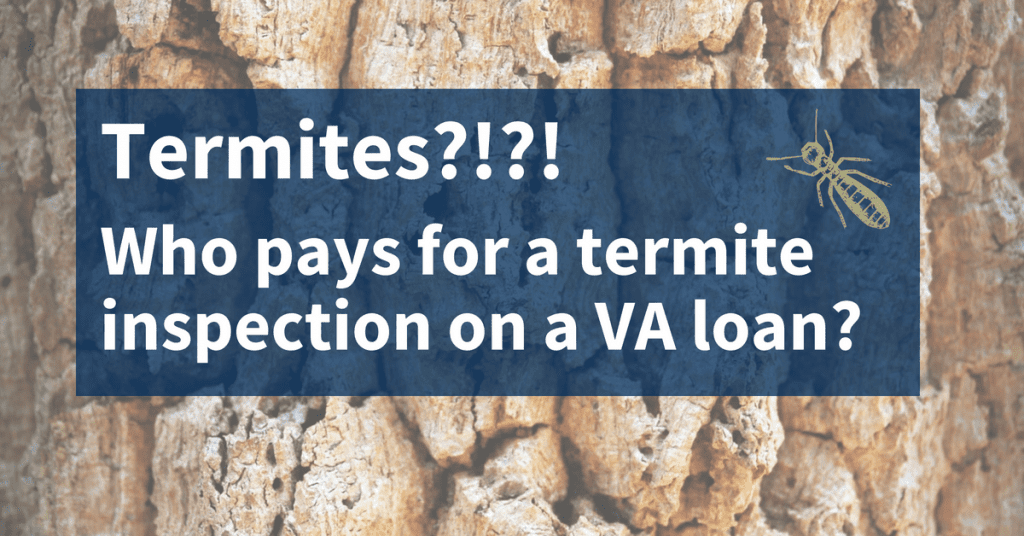
Preventing Pest Infestations
Implementing preventive measures
Prevention is key when it comes to pest control. By implementing preventive measures, you can significantly reduce the risk of pest infestations in your home. Some effective preventive measures include keeping your home clean and free of food debris, storing food in airtight containers, and regularly disposing of waste in proper containers. It’s also important to maintain proper landscaping practices, such as trimming vegetation away from the exterior walls and clearing debris that may serve as hiding places for pests.
Maintaining cleanliness and hygiene
Maintaining cleanliness and good hygiene practices is essential in preventing pest infestations. Regularly clean your home, paying special attention to areas prone to moisture accumulation, such as kitchens and bathrooms. Make sure to promptly fix any leaks or plumbing issues that may provide a water source for pests. Regularly vacuum carpets, sweep floors, and wipe down surfaces to remove food crumbs and debris that can attract pests.
Sealing entry points and gaps
Pests can gain entry into your home through even the smallest gaps and cracks. Inspect your property for any potential entry points and seal them off. Pay attention to areas such as windows, doors, utility openings, and gaps around pipes and cables. Use caulk, weather-stripping, or other suitable materials to seal off these openings. By denying pests access to your home, you can significantly reduce the chances of an infestation.
Regular inspections and monitoring
Regular inspections and monitoring are crucial in detecting and addressing pest issues before they escalate. Conduct routine inspections of key areas of your home, such as the basement, attic, and crawl spaces. Look for signs of pest activity, such as droppings, damaged structural elements, or unusual sounds or smells. If you suspect a pest problem, consult with a pest control professional for a thorough inspection and appropriate treatment.
Potential impact on VA inspections
Implementing preventive measures and maintaining a pest-free environment can have a positive impact on VA inspections. When your property is well-maintained and free from pest issues, it increases the likelihood of a smooth inspection process. This, in turn, can contribute to a more efficient homebuying or selling experience, reducing the potential for delays or complications associated with pest-related concerns.
Common Pests Encountered in VA Inspections
Identifying common pests
During VA inspections, there are several common pests that inspectors commonly encounter. These pests include rodents, termites, ants, cockroaches, and bed bugs, among others. These pests can cause significant damage to the property and pose health risks to the occupants. By familiarizing yourself with these common pests, you can better understand the potential risks and take appropriate preventive measures.
Associated health risks and property damage
Common pests encountered in VA inspections can pose significant health risks to individuals living in the infested property. For example, rodents can transmit diseases such as hantavirus and salmonellosis, while cockroaches can trigger allergies and asthma in sensitive individuals. Additionally, termites can cause extensive structural damage, compromising the safety and value of the property. It’s important to address these pests promptly to mitigate the associated health risks and property damage.
Addressing the pest control needs
Dealing with pests can be challenging, especially when it comes to eliminating them completely. It’s important to consult with a professional pest control service to address the specific needs associated with each pest. Pest control professionals have the knowledge, experience, and access to effective treatments that can help eradicate pests and prevent future infestations. By addressing the pest control needs, you can protect the integrity of your property and ensure a safe living environment.
Considerations for specific pest types
Different pests require different approaches for effective control. For example, termites may require termite baiting or liquid barrier treatments, while rodents may require exclusion measures and trapping. It’s essential to consult a professional pest control service to assess the specific pest issues and recommend appropriate treatment strategies. Professional pest control experts can also provide advice on long-term preventive measures to minimize the risk of recurring infestations.
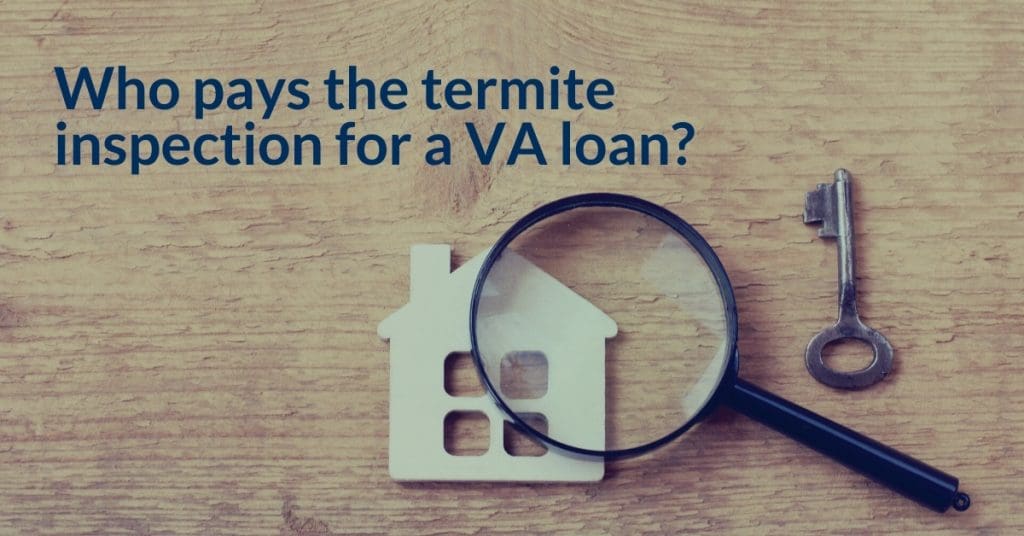
Professional Pest Control Services
Advantages of hiring professional pest control
When it comes to pest control, it’s highly recommended to hire professional pest control services. Professional pest control companies have the expertise to accurately identify pests, assess the severity of infestations, and employ effective treatment methods. By hiring professionals, you can benefit from their experience and access to specialized equipment and products that may not be readily available to homeowners. Their expertise and resources can greatly enhance the effectiveness of pest control efforts.
Choosing the right pest control company
Choosing the right pest control company is essential to ensure quality service and optimal results. When selecting a pest control company, consider factors such as their experience in handling the specific pest issues you’re facing, their reputation in the industry, and their licensing and certifications. It’s also helpful to read reviews and testimonials from previous customers to gauge their level of customer satisfaction. Take the time to compare different companies and request recommendations from trusted sources to make an informed decision.
Requesting price quotes and estimates
Before hiring a pest control company, it’s important to request price quotes and estimates for the services you require. Compare the cost of services from different companies to ensure you’re getting a fair and competitive price. However, keep in mind that price should not be the sole determining factor. Consider the company’s qualifications, reputation, and track record of successful pest control outcomes in addition to their pricing.
Understanding service warranties
Service warranties are an important aspect to consider when hiring a pest control company. Reputable pest control companies often provide warranties or guarantees on their services to ensure customer satisfaction. These warranties may include provisions for follow-up treatments or refunds if the pest problem persists after initial treatments. Before hiring a pest control company, carefully review and understand the terms and conditions of their service warranties.
Pest Control Expenses: Who Pays?
Determining responsibility in various scenarios
Pest control expenses can vary depending on the specific circumstances of the homebuying or selling process. In some cases, the responsibility for pest control expenses may rest with the homebuyer, while in others, the seller may be responsible. Additionally, the terms of the purchase agreement, local regulations, and negotiations between the buyer and seller can further influence the allocation of pest control expenses. It’s essential to clarify these responsibilities to avoid misunderstandings and disputes during the transaction process.
Negotiating pest control costs
Negotiating pest control costs is a common practice during the homebuying or selling process. Depending on the inspection findings and the presence of pest-related issues, both parties can negotiate who will be responsible for the costs associated with pest control treatments and repairs. Open and transparent communication is key in reaching a fair and mutually acceptable agreement. It’s advisable to consult with legal professionals or real estate agents experienced in these matters to ensure a smooth negotiation process.
Impact on homebuying negotiations
Pest control expenses and responsibilities can have an impact on homebuying negotiations. Depending on the severity of the pest issues and the costs associated with addressing them, the buyer may negotiate for a reduction in the purchase price or request the seller to address the pest problems before closing. Conversely, the seller may factor in the potential costs of pest control treatments when setting the initial asking price. It’s important for both buyers and sellers to weigh the associated costs and consider the potential impact on negotiations.
Considering long-term pest control plans
While addressing immediate pest control needs is crucial, it’s also important to consider long-term pest control plans. Investing in preventive measures and ongoing pest control services can help minimize the risk of future infestations and associated costs. Buyers and sellers should consider the long-term benefits of such plans and discuss their preferences with the other party. By proactively addressing pest control concerns, both parties can contribute to creating a healthier and more secure living environment.
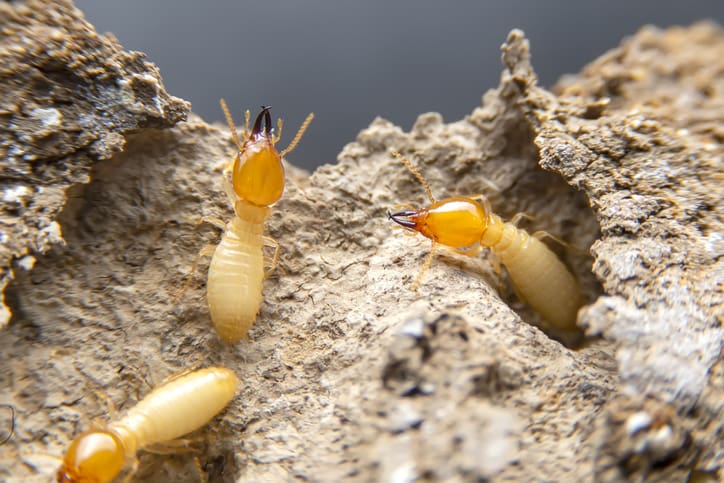
Benefits of Pest-Free Homes
Improved living conditions and health
One of the primary benefits of having a pest-free home is improved living conditions and better health for you and your family. Pests can carry diseases and contaminate food, posing serious health risks. By ensuring your home is free from pests, you can create a safe and healthy environment for everyone living in the property.
Preserving property value
A pest-free home is also more likely to maintain its value over time. Pests, such as termites, can cause significant damage to the structure of a property, reducing its value and requiring costly repairs. By addressing pest control proactively, you can protect your property’s value and potentially save money in the long run.
Reducing the risk of expensive repairs
Addressing pests promptly can significantly reduce the risk of expensive repairs in the future. For example, if a termite infestation is left untreated, it can cause extensive damage to wooden structures, necessitating costly repairs or even structural reconstructions. By investing in regular pest inspections and treatments, you can detect and mitigate pest-related issues before they escalate into costly repairs.
Peace of mind for homeowners
Living in a pest-free home offers homeowners peace of mind. Knowing that your property is free from pests and the associated risks can provide a sense of security and comfort. It allows you to focus on enjoying your home without the constant worry of infestations or the potential health and safety hazards that pests can pose.
Conclusion
Summary of key points
Pest control and VA inspections play vital roles in the homebuying and selling process. Homebuyers and sellers have different responsibilities when it comes to addressing and preventing pest-related issues. VA loans require specific inspections, including pest inspections, to ensure the integrity and safety of the financed properties. Preventive measures, regular inspections, and professional pest control services are essential for preventing infestations and addressing existing pest problems. Negotiating pest control expenses is common, and both buyers and sellers should understand their responsibilities in various scenarios.
Importance of addressing pest control
Addressing pest control is crucial for maintaining a healthy and comfortable living environment. Pests can cause significant damage to properties and pose health risks to occupants. By taking preventive measures, scheduling inspections, and addressing existing pest problems, homeowners can create a pest-free environment that promotes well-being and preserves property value.
Encouraging responsible homebuying and selling
By understanding the responsibilities and requirements related to pest control and VA inspections, homebuyers and sellers can ensure a smoother transaction process. Open and transparent communication, along with proactive measures, can help avoid potential disputes and delays. Encouraging responsible homebuying and selling practices promotes a positive experience for all parties involved and contributes to the overall well-being of homeowners and the communities they reside in.
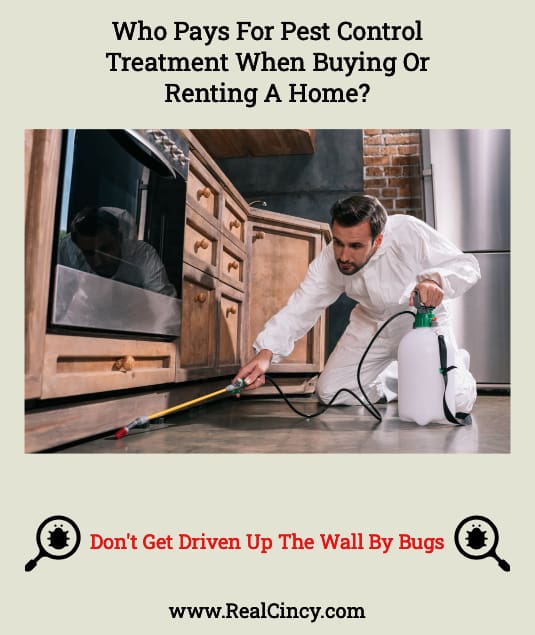

I am Randy, the author behind PestControld.com. Drawing from decades of experience, I aim to provide valuable insights, expert advice, and practical recommendations to help you make informed decisions when assessing viable pest control solutions.